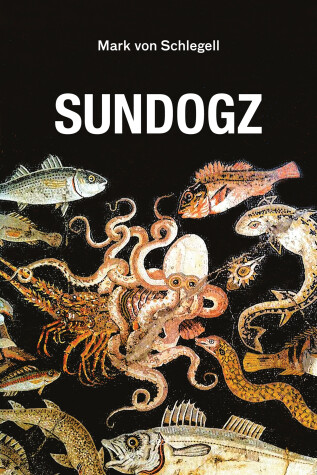Semiotext(e) / Native Agents
3 total works
Primitive literacy is redundant. Mere words are expelled. We inaugurate a world of pure presence. The mind, that intrudes itself between ourselves and those memories too terrible to know, must keep us moving beyond the grasp of their claw. To control the flow, it will be necessary that political order be imposed always temporarily. The state shall enjoy direct, creative access to the real. It's the end of the twenty-third century. Earth has violently self-destructed. Venusia, an experimental off-world colony, survives under the enlightened totalitarianism of the Princeps Crittendon regime. Using industrialized narcotics, holographic entertainment, and memory control, Crittendon has turned Venusia into a self-sustaining system of relative historical inertia. But when mild-mannered junk dealer Rogers Collectibles finds a book about early Venusian history, the colony—once fully immersed in the present—begins losing its grip on the real. With his Reality-V girlfriend Martha Dobbs, neuroscop operator Sylvia Yang, his midget friend Niftus Norrington, and a sentient plant, Rogers wages a war to alter the shape of spacetime, and in the process, revisions the whole human (and vegetable) condition.
Was there some sort of accident? The Doll was now certain that the Japanese didn't consider him a human. He was concerned with Deary alone. Her flukes lifted to maintain her treading water, left her pale bottom and sex exposed. Was he watching simultaneously from below? The Doll let his tendrils obscure. 5 hours till orbital synch, he remembered. The Doll called up the red-screen into his mindspace and traced the instantly visible tags: Mab's Buoy relay SFS Good Fortune, Wawagawanet 2145270401:33
—from Sundogz
Beginning with Venusia (2005) and continuing with Mercury Station (2009), Mark von Schlegell's System Series has moved backward in time, investigating the contours of time, memory, perception, and control in the inter-planetary system that emerge off-world in the twenty-second and twenty-third centuries during Earth's full collapse.
In the latest installment, Sundogz, set among the water-rich moons of planet Uranus, extremist astro-marine “spacers” have constructed an aquatic world of extraordinary scope and ambition, entirely invisible to the System at large. The Good Fortune, a spaceship en route to Moon Miranda, the most beautiful and troublesome of Uranus's satellites, sends out a party to explore rumors of a secret fish farm in the λ ring. Now the "Oan Bubble" must attempt to survive its discovery.
The characters in Sundogz traverse a cybernetic world containing traces of nineteenth-century realism, Shakespearean-style wit and violence, and classic fantasy, while exploring possible modes of the imagination's survival in centuries to come.
As Jeff Vandermeer noted in Bookforum, von Schlegell's work “addresses the realities of a grim future with grace, humor and intellectual honesty—[his novels] hark back to the heyday of such giants as J. G. Ballard, Ursula Le Guin, John Calvin Batchelor, and Philip K. Dick.”
Published by Semiotext(e) in 2005, Mark von Schlegell's debut novel Venusia was hailed in the sci-fi and literary worlds as a “breathtaking excursion” and “heady kaleidoscopic trip,” establishing him as an important practitioner of vanguard science fiction. Mercury Station, the second book in Von Schlegell's System Series, continues the journey into a dystopian literary future. It is 2150. Eddard J. Ryan was born in a laboratory off Luna City, an orphan raised by the Black Rose Army, a radical post-Earth Irish revolutionary movement. But his first bombing went wrong and he's been stuck in a borstal on Mercury for decades. System Space has collapsed and most of human civilization with it, but Eddie Ryan and his fellow prisoners continue to suffer the remote-control domination of the borstal and its condescending central authority, the qompURE MERKUR, programmed to treat them as adolescents. Yet things could be worse. With little human supervision, the qompURE can be fooled. There's food and whiskey, and best of all, the girl of Eddie Ryan's dreams, his long-time friend and comrade Koré McAllister, is in the same prison. When his old boss, rich and eccentric chrononaut Count Reginald Skaw shows up in orbit with an entire interstation cruiser at his disposal, there's even the possibility of escape... back in time. Like Venusia, Mercury Station tells a compelling story, drawn through a labyrinth of future-history sci-fi, medieval hard fantasy, and cascading samplings of high and low culture. The book is a brilliant literary assault against the singularity of self and its imprisonment in Einsteinian spacetime.


